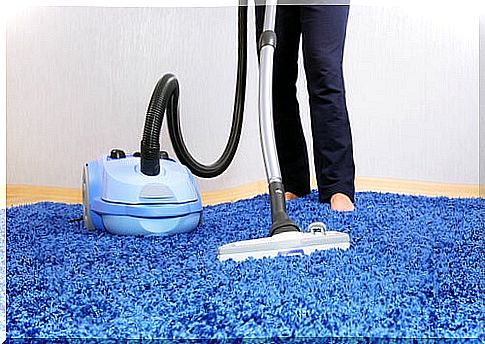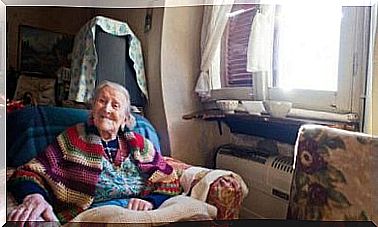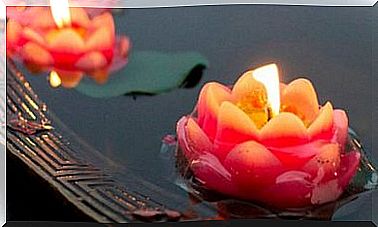Housework Can Be Therapeutic

‘Cleaning up the house’ should not only be interpreted literally. Because it also has a symbolic meaning: removing the emotional burden by leaving behind things that are no longer useful. It is easy to understand how disorder can cause stress and worry. Do your housework as an exercise in mindfulness. You will get important benefits from it. For many people, the household can be therapeutic.
When you do housework as a positive activity and a kind of exercise, it can reduce stress. So get ready to perform one of the most vulgar and unpopular activities with a different attitude.
Examples of housework as a form of therapy
We give you some examples of how housework can also mean a bit of inner cleaning.
- In some cultures, cleaning the house is highly valued. It is considered an important activity. In Japan, for example, it is called “oosouji.” This means ‘thorough cleaning’. On the twenty-eighth of December, people do this thorough cleaning so that they can ring in the new year with a clean house. For Japanese, saving old junk and old attitudes for the new year is a bad omen.
- According to health experts, household chores can be relaxing and even meditative. Psychologist Isabela Pérez-Luna describes it this way: “Cleaning up and organizing work as a means to arrive at a catharsis. It’s a way to get rid of things you no longer need.”

- Facilitator Marie Kondo explains this in her book The Life-Changing Magic of Tidying Up. Keeping your home clean and tidy has a direct impact on your happiness and well-being.
- In a radio interview, British actress Helena Bonham Carter described the therapeutic power of housework. Carter is Tim Burton’s partner and muse. She firmly believes that she no longer has to pay for therapy sessions because she has discovered ‘ the therapy of cleaning’ . This is her statement: “ If you put your house in order, it will also clear your head.”
Cleanliness and Buddhism
Buddhism considers cleaning to be a form of meditation that you can do every day. For Buddhist monks, housekeeping is a spiritual practice that develops and purifies your mind, soul and life.
Remember that one of the Buddha’s disciples found Nirvana while sweeping. According to the Buddhists, people are connected to their environment. The environment reflects their spirit. So that means to them that when the environment is disordered, so is the mind. So if you keep your house tidy, your mind will be calm and clear.
They also believe that cleaning helps to focus the mind on the present. Because living in the here and now is one of the keys to achieving happiness and success.
The Ten Commandments of Housework
Keisuke Matsumoto is the author of the book A Buddhist Monk’s Guide to a Clean House and Mind. In the book he gives an overview of the ten commandments with which you can improve your life through housework:
- Handle objects carefully. For every object is the result of effort and dedication. So you have to respect it.
- Be grateful for the objects that have already been very useful to you. Get rid of them when you no longer need them. You can give them a new lease of life by giving them to someone who can use them well.

- The best thing you can do is clean up in the morning. If you start the day calmly and in silence, while everyone is still asleep, your heart will feel peace. In addition, your mind will also be clear.
- Before going to sleep, put away and organize everything you use and have moved during the day. This will make it easier to clean the next day.
- Clean in the morning and organize everything in the evening. You will notice that you will feel like new during the day.
Fresh air, living in the present and teamwork
- Open the windows and ventilate the house before cleaning. That way you purify the air. Feel the fresh air on your skin. You will feel more awake and clear.
- You can feel the wind coming in through the window. That puts you in touch with nature. The air is soft and pleasant in spring and autumn, warm in summer and freezing cold in winter. You feel the wind touch your skin both gently and hard. This will allow you to connect with your vulnerability and with the power of nature.
- Show respect for life by cleaning up after every meal. That way you don’t attract insects and you don’t have to kill unnecessarily.
- Instead of regretting the past or worrying about the future, try to live fully in the present moment. Also apply this to housework, ‘ don’t put off until tomorrow what you can do today’.
- Divide the tasks among the family members and work on a rotational basis. This will help you appreciate what others do for you. You also learn to realize that you are all dependent on each other. This helps you to work as a team and think about each other before you act.
Housework can be therapeutic
The need to clean and organize our environment actually comes from the need for innovation. Cleaning your environment can also be a moment of daily or weekly meditation. Take the opportunity to do an exercise in mindfulness.
You will be able to do this by not using your time to solve problems. Don’t watch TV or argue with your partner.
You have to focus on the act itself. Organize, stay quiet and pay attention to what you are doing. This state of full attention makes it possible to reach a meditative state. In that state, brain activity will decrease. So you will decrease the stress level and the amount of anxiety. This is how housework can become an exercise for physical and spiritual recovery.









